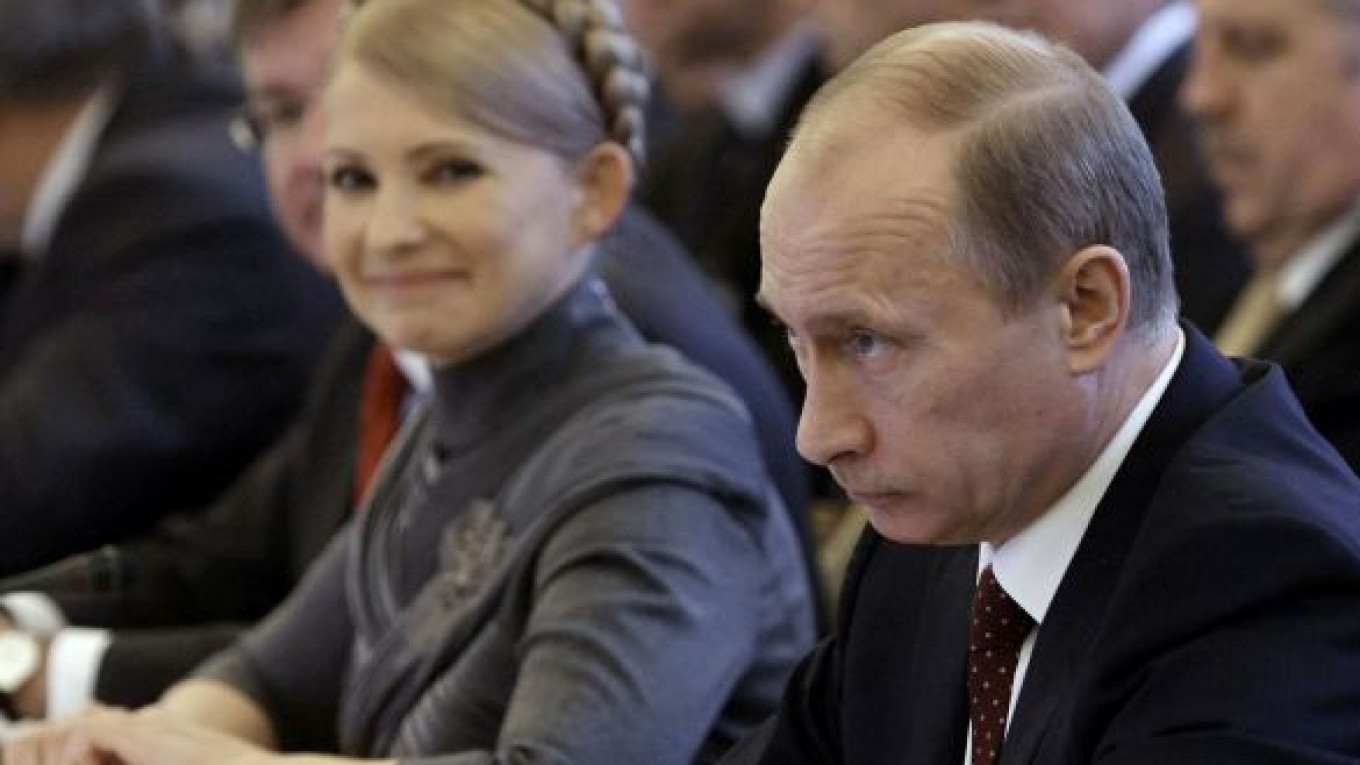Prime Minister Vladimir Putin has agreed to an important concession in the gas trade with Ukraine, heading off the threat of a dispute that could disrupt transit to Europe this winter.
After talks with Ukraine’s Prime Minister Yulia Tymoshenko that ended almost at midnight Thursday, Putin announced that the neighboring countries would revise their gas trade contract to meet Ukraine’s requests and preserve the fragile delivery arrangement.
“I am sure we need to value what we have achieved, rather than destroy it and fall again into a crisis and chaos,” he said at a news conference in Yalta, a Black Sea resort town in Ukraine.
Hard-hit by the crisis, Ukraine has found that it doesn’t need as much gas as it is obliged to buy from Russia under a contract that the countries signed in January. Russia has so far waived billions of dollars in noncompliance fines stipulated by the take-or-pay clause, but Ukraine has insisted on changing the contract to reduce its import requirements.
The changes would mean that Ukraine would no longer face the threat of penalties next year, Putin said.
Ukrainian President Viktor Yushchenko has estimated that his country will have run up fines worth 8.5 billion by the end of this year for importing 40 percent less gas than it had initially asked for. Putin reiterated Friday that Gazprom would not charge the fines to Ukraine, though it plans to with other European buyers.
“Keeping in mind the special nature of the relations between Russia and Ukraine … a decision was made not to seek these sanctions,” Putin said. “I want to state this again in public: There will be no sanctions.”
He didn’t say why Ukraine was special, but he apparently referred to the close historical ties between the countries.
Putin and Tymoshenko defended the terms of the contract as “standard” for Gazprom’s other European customers and fair for Ukraine. Yushchenko, who like Tymoshenko is running in the January presidential elections, has said the contract was tilted in favor of Russia because it didn’t carry penalties for Gazprom for reducing the amount of gas that it transits through Ukraine this year.
The agreement between Moscow and Kiev clears one of the potential hurdles for the safety of European supplies, said Andrew Neff, an analyst with IHS Global Insight.
“There was no denying that the potential for a new ‘gas war’ between the two countries hung heavy over the summit, which ended with news of a compromise geared to prevent just that,” he said by e-mail from Washington.
Risks, however, still remain, he said.
“The threat of a rupture in the fragile peace in the bilateral gas relationship remains salient, with Ukrainian politics likely to provide the spark in any new gas conflict,” he said, referring to the upcoming elections.
Moscow appears to have picked sides in the election campaign. Putin praised Tymoshenko as a good negotiating partner for his government Friday in a sign that she is a presidential candidate whose victory would please Russia.
“We feel comfortable working with Tymoshenko,” he said. “I believe that relations between Russia and Ukraine have grown more stable and stronger over the time that we cooperated.”
A Message from The Moscow Times:
Dear readers,
We are facing unprecedented challenges. Russia's Prosecutor General's Office has designated The Moscow Times as an "undesirable" organization, criminalizing our work and putting our staff at risk of prosecution. This follows our earlier unjust labeling as a "foreign agent."
These actions are direct attempts to silence independent journalism in Russia. The authorities claim our work "discredits the decisions of the Russian leadership." We see things differently: we strive to provide accurate, unbiased reporting on Russia.
We, the journalists of The Moscow Times, refuse to be silenced. But to continue our work, we need your help.
Your support, no matter how small, makes a world of difference. If you can, please support us monthly starting from just $2. It's quick to set up, and every contribution makes a significant impact.
By supporting The Moscow Times, you're defending open, independent journalism in the face of repression. Thank you for standing with us.
Remind me later.


